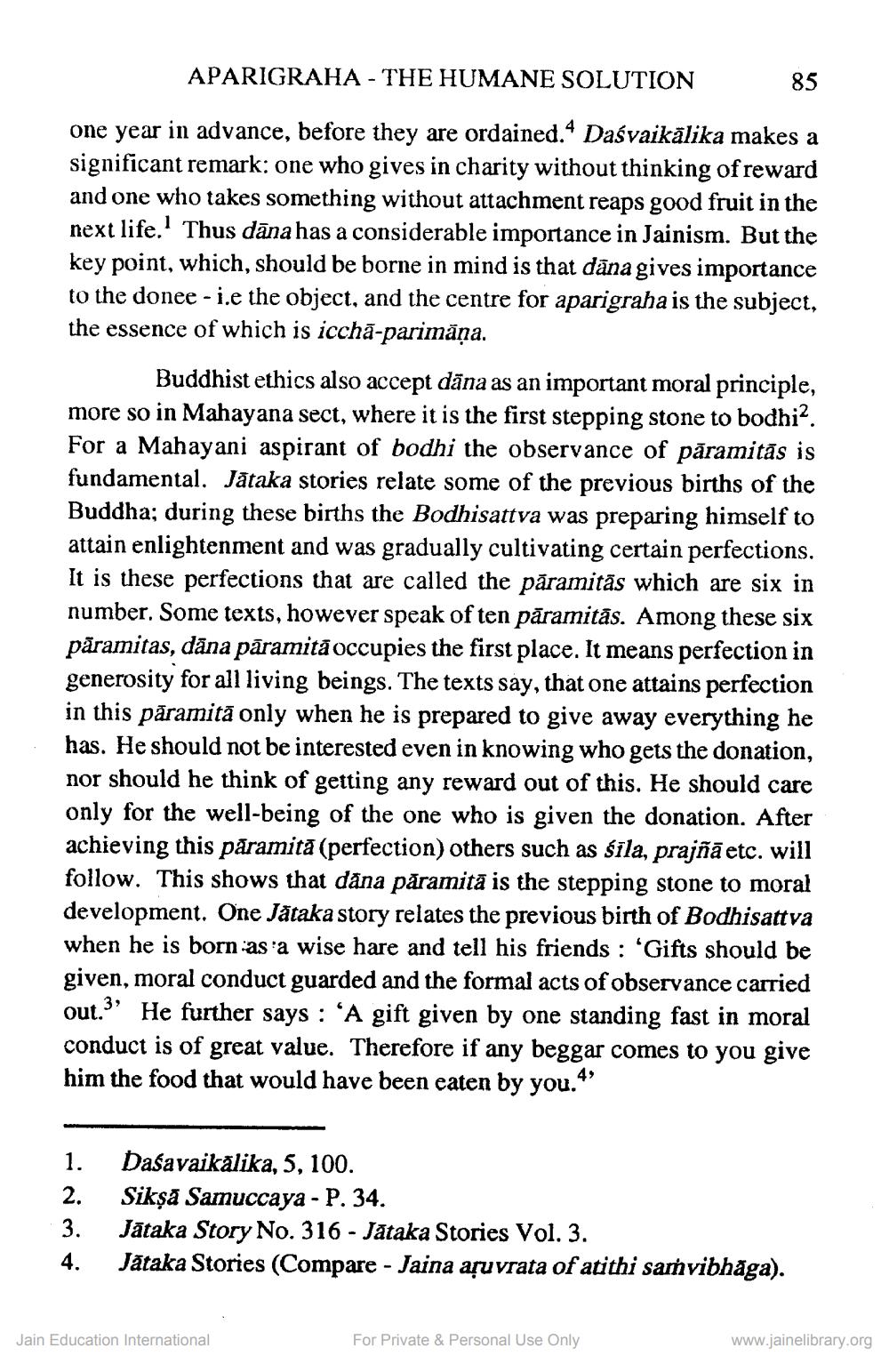________________
APARIGRAHA - THE HUMANE SOLUTION 85 one year in advance, before they are ordained." Daśvaikālika makes a significant remark: one who gives in charity without thinking of reward and one who takes something without attachment reaps good fruit in the next life. Thus dāna has a considerable importance in Jainism. But the key point, which, should be borne in mind is that dāna gives importance to the donee - i.e the object, and the centre for aparigraha is the subject, the essence of which is icchā-parimāņa.
Buddhist ethics also accept dāna as an important moral principle, more so in Mahayana sect, where it is the first stepping stone to bodhi?. For a Mahayani aspirant of bodhi the observance of pāramitās is fundamental. Jātaka stories relate some of the previous births of the Buddha; during these births the Bodhisattva was preparing himself to attain enlightenment and was gradually cultivating certain perfections. It is these perfections that are called the pāramitās which are six in number. Some texts, however speak of ten pāramitás. Among these six pāramitas, dāna pāramitā occupies the first place. It means perfection in generosity for all living beings. The texts say, that one attains perfection in this pāramitā only when he is prepared to give away everything he has. He should not be interested even in knowing who gets the donation, nor should he think of getting any reward out of this. He should care only for the well-being of the one who is given the donation. After achieving this pāramita (perfection) others such as sila, prajñā etc. will follow. This shows that dana pāramitā is the stepping stone to moral development. One Jätaka story relates the previous birth of Bodhisattva when he is born as a wise hare and tell his friends : 'Gifts should be given, moral conduct guarded and the formal acts of observance carried out. He further says : 'A gift given by one standing fast in moral conduct is of great value. Therefore if any beggar comes to you give him the food that would have been eaten by you.4
1. 2. 3. 4.
Daśavaikälika, 5, 100. Siksa Samuccaya - P. 34. Jātaka Story No. 316 - Jataka Stories Vol. 3. Jätaka Stories (Compare - Jaina asuvrata of atithi sarvibhāga).
Jain Education International
For Private & Personal Use Only
www.jainelibrary.org




